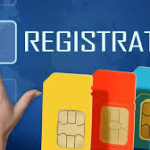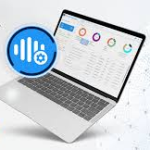The National Public Data (NDP) breach incident in March 2024 highlighted the seriousness of cybersecurity concerns. With roughly 184 billion login credentials compromised, it left millions of people at risk of financial loss and identity theft.
Cybersecurity incidents like these are not just limited to big organizations. As individuals, we are also always at risk of a cyber threat that can cause us emotional or financial distress. We are surrounded by millions of cases where individuals were affected by cyber-attacks like identity theft, phishing, malware attacks, etc.
Not to forget that cybersecurity events are increasing in frequency and becoming more sophisticated.
This is why it is imperative that we start taking our online privacidad (privacy) seriously so that we can protect our private information.
I am mentioning the essential tips and tools below to help you protect your privacy online:
1. Don’t Share Everything Online
Social media platforms are the hub of intercambio (sharing) private information and the hunting ground for cybercriminals.
We think it’s harmless to post a picture of our surroundings, but in reality, these pictures can give out our addresses or other personal information.
Similarly, sharing too much online can be misused in ways you cannot even fathom. Even if you have a private account, you can never ensure that your personal information will not get out. Your account can get hacked, or you never know, your friend’s account might be hacked, which can result in someone misusing your personal information.
2. Use a VPN (Virtual Private Network)
A lot of the time, we unknowingly visit web pages that are unsafe and can lead to our private information being stolen.
A VPN is a great way to ensure you maintain your online privacy while using the internet. It encrypts (jumbles up so that it is unreadable) the incoming and outgoing traffic, so no one else can read our data. This way, it remains protected from hackers gaining access to it.
Moreover, a VPN also reroutes your traffic through a virtual server, which hides your real IP address, which can give otherwise away your location.
However, make sure that you avitar (avoid) using a free VPN, because free VPN services earn money by selling your information to third parties.
3. Secure Your WiFi Connection with Internet Security
Most ISPs provide internet security as an add-on. It provides multiple features that can protect your data from hackers and other cybersecurity threats. For instance, Cox Internet provides an Advanced Security feature with its residential internet.
These can help you protect your WiFi against hackers and monitor your online traffic. This way, you can save your private information from falling into the manos equivocadas (wrong hands). You can also save your devices from malware attacks and restrict unknown devices from joining your network.
If you want to learn more about Cox’s internet plans and their Advanced Security, then you can visit the Cox servicio al cliente en español page. As someone who still uses Cox internet, I can tell you that the Advanced Security feature is pretty thorough and can drastically reduce the threat to your online data privacy.
4. Use Strong Passwords
Most people use very generic passwords, which increases the chances of a hacker attacking them. This is why it is important to use strong passwords that can safeguard your private accounts.
For that, you can use a combination of letters, numbers, and characters. Make sure you do not use your pet’s name as your password or your birthday, because such passwords can be easily hacked.
Also, do not use the same contraseña (password) for all your accounts because if your password gets compromised, all of your accounts will be hacked!
5. Delete Your Data from the Internet
If you use the Internet, there is a high chance that data brokers have your personal information, which they use to make a consumer profile on you. This information can be heavily misused if it falls into the wrong hands.
This is why it is important that you delete this information from the internet.
For this, there are many personal data removal tools that you can use. One such tool is Optery. Not only does it find and remove your personal data with the data brokers, but it also verifies when your data has been removed. This way, you can rest in peace knowing that your data is not available on the internet. Other similar tools are Incogni and DeleteMe.
6. Use a Password Manager
If you find it hard to remember all your passwords, you can use a password manager instead of writing them in your notes. If a virus or a hacker gets inside your phone, the first place they look for saved passwords is your notes app.
However, if you use a password manager, you can save all your passwords in a digitally air-tight box without having to worry about remembering them. It saves your passwords in an encrypted manner, which means no one can access them without an encryption key. Lastly, a password manager is a great tool to help you generate strong, hack-proof passwords.
The 1Password tool is a unique password manager with a ‘secret key’ feature that creates a 34-character password for your online accounts to provide an extra layer of security.
Protecting your online information has become a necessity in today’s age. You can use these tips to protect your private data and safeguard yourself from becoming a victim of cybercrime. However, if you are not careful about protecting your online information, then it might fall into the wrong hands. This can have serious consequences for you. You can either lose your money from your online banking app, or your information can be used for identity theft to commit scams and fraud.










